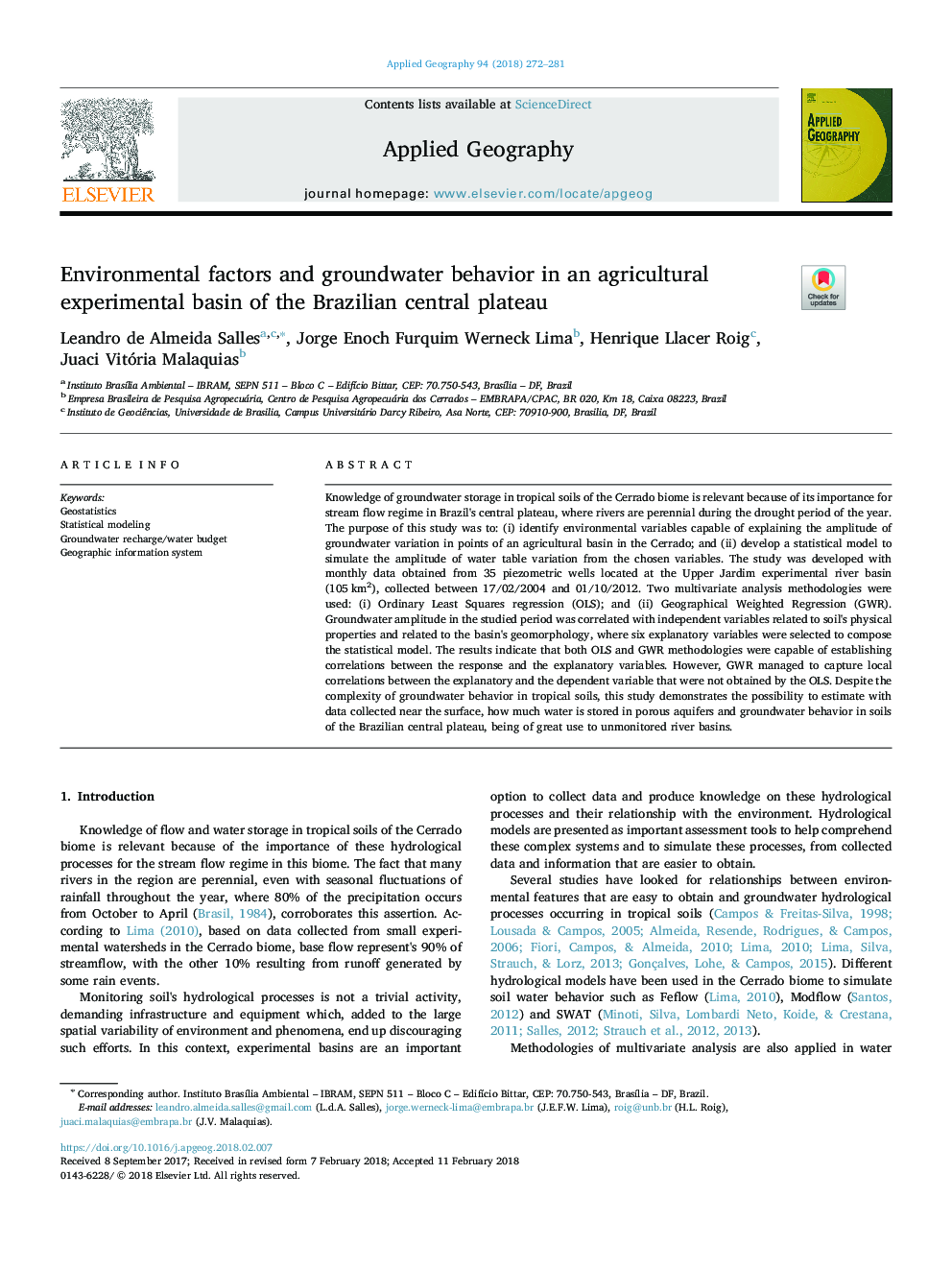| Article ID | Journal | Published Year | Pages | File Type |
|---|---|---|---|---|
| 6538294 | Applied Geography | 2018 | 10 Pages |
Abstract
Knowledge of groundwater storage in tropical soils of the Cerrado biome is relevant because of its importance for stream flow regime in Brazil's central plateau, where rivers are perennial during the drought period of the year. The purpose of this study was to: (i) identify environmental variables capable of explaining the amplitude of groundwater variation in points of an agricultural basin in the Cerrado; and (ii) develop a statistical model to simulate the amplitude of water table variation from the chosen variables. The study was developed with monthly data obtained from 35 piezometric wells located at the Upper Jardim experimental river basin (105â¯km2), collected between 17/02/2004 and 01/10/2012. Two multivariate analysis methodologies were used: (i) Ordinary Least Squares regression (OLS); and (ii) Geographical Weighted Regression (GWR). Groundwater amplitude in the studied period was correlated with independent variables related to soil's physical properties and related to the basin's geomorphology, where six explanatory variables were selected to compose the statistical model. The results indicate that both OLS and GWR methodologies were capable of establishing correlations between the response and the explanatory variables. However, GWR managed to capture local correlations between the explanatory and the dependent variable that were not obtained by the OLS. Despite the complexity of groundwater behavior in tropical soils, this study demonstrates the possibility to estimate with data collected near the surface, how much water is stored in porous aquifers and groundwater behavior in soils of the Brazilian central plateau, being of great use to unmonitored river basins.
Related Topics
Life Sciences
Agricultural and Biological Sciences
Forestry
Authors
Leandro de Almeida Salles, Jorge Enoch Furquim Werneck Lima, Henrique Llacer Roig, Juaci Vitória Malaquias,
